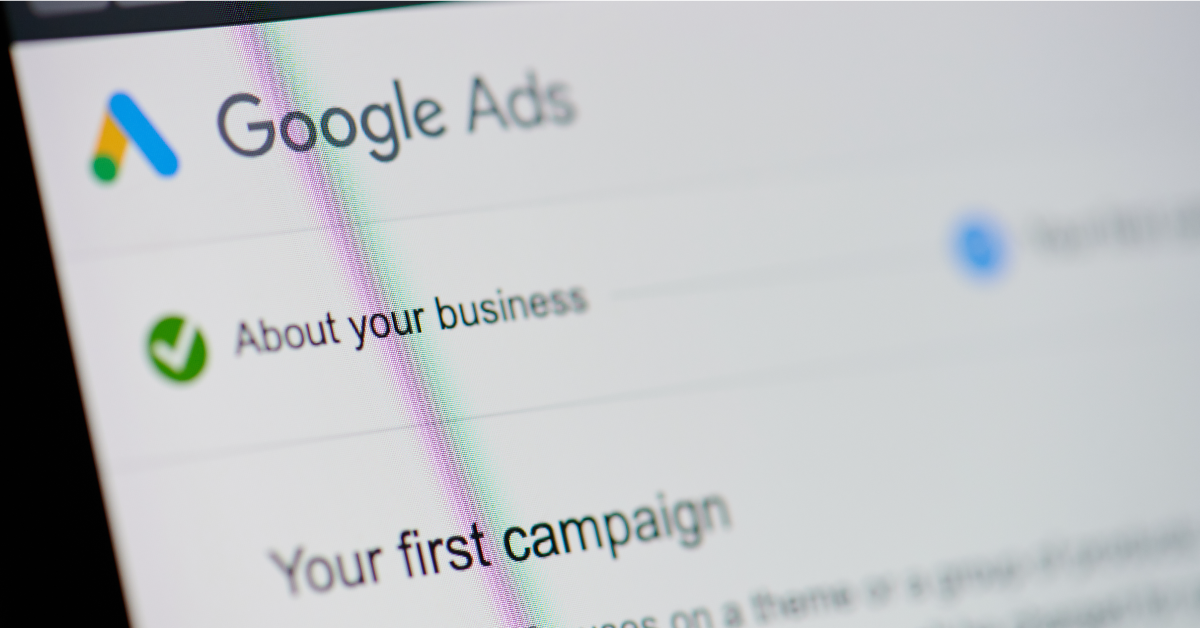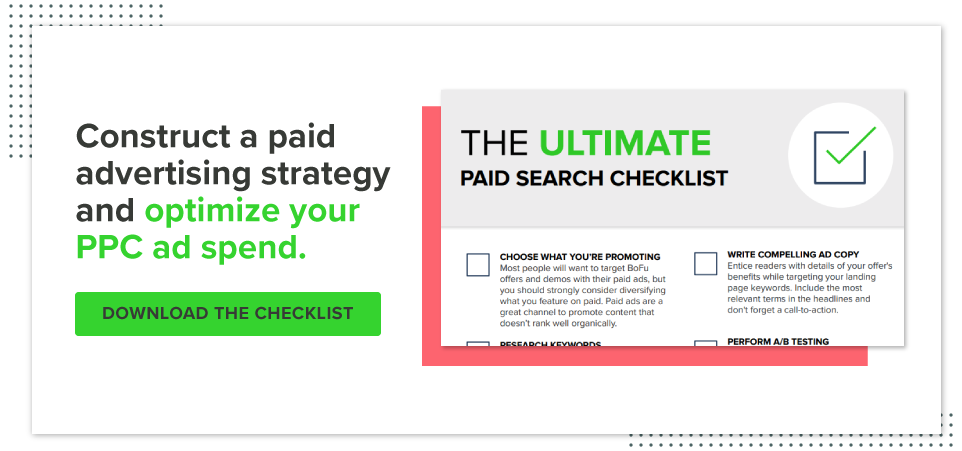How to Solve Common PPC Advertising Mistakes

For many businesses, PPC advertising is used to supplement their ongoing organic efforts, reach a more targeted audience and drive more conversions. That means that paid advertising is an important arm of any comprehensive demand generation program.
That said, PPC campaigns require consistent optimization to make sure they’re driving results and making the most of your investment. There are a number of common mistakes that can often be overlooked and drag down the performance of your campaigns.
Only Using Broad Match Keywords
Keywords are at the heart of your pay-per-click advertising campaigns. Successful campaigns often start with robust keyword research to pinpoint which search terms are relevant to your audience’s intent and your offer.
A common mistake though is to leave those meticulously researched search terms as broad match keywords in your campaigns.
Broad match keywords will show your ads on searches that include a variety of related keywords or misspelled words. Broad match also factors in a user’s recent search history, your other keywords and the ad’s landing page copy, which means there is a wide range of searches your ad may appear on. While this may garner a larger share of impressions, it may not lead to the most qualified traffic or conversions.
Broad match keywords can eat up your budget because they are shown to a much wider audience for whom the offer or content may not be entirely relevant.
Solution
Incorporate phrase match and exact match keywords into your campaigns, especially those where the intended goal is conversions. Additionally, you can switch any high-quality search terms that are currently broad match to phrase match or exact match.
Exact match keywords will show ads only on the most closely aligned search queries. Generally speaking, going with more exact match keywords requires a longer list of targeted terms to build up the share of impressions your ad can generate.
Utilizing phrase match keywords will show your ads on queries that match the order of keywords. In other words, if your term is “budget friendly juicers,” then your ad will only appear on searches for those words in that order. Alternatively, an ad with a broad match for the same keyword may appear on search results for “juicer recipes” or “juicer maintenance.”
Both phrase and exact match will generally require a higher bid to rank effectively, but if you’re utilizing the right keywords, the returns are generally more substantial.
Not Implementing Negative Keywords
Paid advertising is an investment, and you don’t want your spend being wasted on people who won’t inevitably choose to buy from your company. With proper targeting, your PPC ads should be generating qualified leads and traffic.
While using phrase match and exact match keywords can help hone in your targeting, you can do even more by utilizing negative keywords. Unlike keywords that you bid for your ad to appear on, negative keywords are search terms that are filtered out of where your ad could come up as a result.
Without negative keywords, your ads can show on search queries that are irrelevant to your offer or the user’s intent. This can again generate more clicks that eat up your budget but don’t result in positive ROI.
Solution
Just as you optimize your typical keywords, implementing negative keywords should be an ongoing process. Prior to launching your campaigns, consider terms that your ad might appear on but are ultimately irrelevant and add them as negative keywords.
Search engine marketing tools like SEMRush or Moz enable you to do consistent research into what search terms are generating impressions for your ads. By reviewing which terms are driving conversions and which aren’t, you can add more negative keywords over time to narrow down your targeting and improve your results.
Focusing on the Wrong Success Metrics
A foundational element of a successful PPC advertising campaign is clear goals. Whether you’re aiming for awareness, traffic or leads, your goals will ultimately inform the type of keywords you bid for and the audience you target.
While launching campaigns without a clear strategy or established goals would be a significant mistake, a more frequently made error is focusing on the wrong success metrics.
Common PPC metrics like impressions, clicks and cost per click are good to look at, but shouldn’t be the ultimate standard for measuring success. You might be reporting to your leadership that your high clicks and impressions are signs your campaigns are working, but are you generating leads? In the same vein, a low cost per lead is great, but consider, are those leads becoming customers?
Solution
The best fix to this mistake is to ensure your success metrics are directly tied to the goals you establish before you launch. For instance, impressions are essential for awareness campaigns but are less valuable for retargeting or lead generation campaigns.
Going even deeper, while not entirely universal, your PPC campaigns should likely be resulting in revenue. Return on investment or more specifically, customer acquisition cost, are excellent metrics to measure the success of your PPC campaigns.
Finally, you should also consider your customer’s lifetime value. If you generate positive returns through some PPC campaigns and not others, are your negative ROI or high-acquisition-cost campaigns actually generating the customers who stay and continue to buy from your company?
Ignoring Ad Quality Score
Quality score is a more nuanced metric that is often overlooked by those new to PPC advertising. Essentially, it is a score of 1 to 10 assigned by Google based on the keyword’s relevance, expected click-through rate and landing page experience.
A poor quality score will cause you to rank lower than competitors bidding for the same keyword. This means you’ll spend more money fighting for higher positions in search results.
Solution
Like most PPC advertising problems, improving your quality score should be an ongoing effort, but the juice is definitely worth the squeeze. A higher quality score enables you to spend less per click and win more auctions.
To ensure better quality scores, make sure you invest time prior to launch in ensuring your ad groups include a small number (think 4 to 5) of highly relevant keywords. Then, incorporate those keywords regularly into your ad copy.
Additionally, using exact match keywords and winning auctions for that keyword will demonstrate the relevancy of that keyword to your ad. Finally, make sure your ad’s landing page follows best practices, is relevant to your ad copy and is optimized for conversions.
Takeaway
Perhaps the largest mistake you can make when it comes to managing your paid advertising efforts is to simply set it and forget it. Successful PPC advertising campaigns are a constant work in progress.
It’s imperative that you are consistently monitoring your performance using relevant metrics and making adjustments to improve your results and ultimately generate greater returns.
Chris Singlemann
Chris is a Brand Marketer at New Breed where he is responsible for crafting design and video assets that support our brand. When he's not behind the camera, he enjoys kayaking and tending to his sourdough starter.





